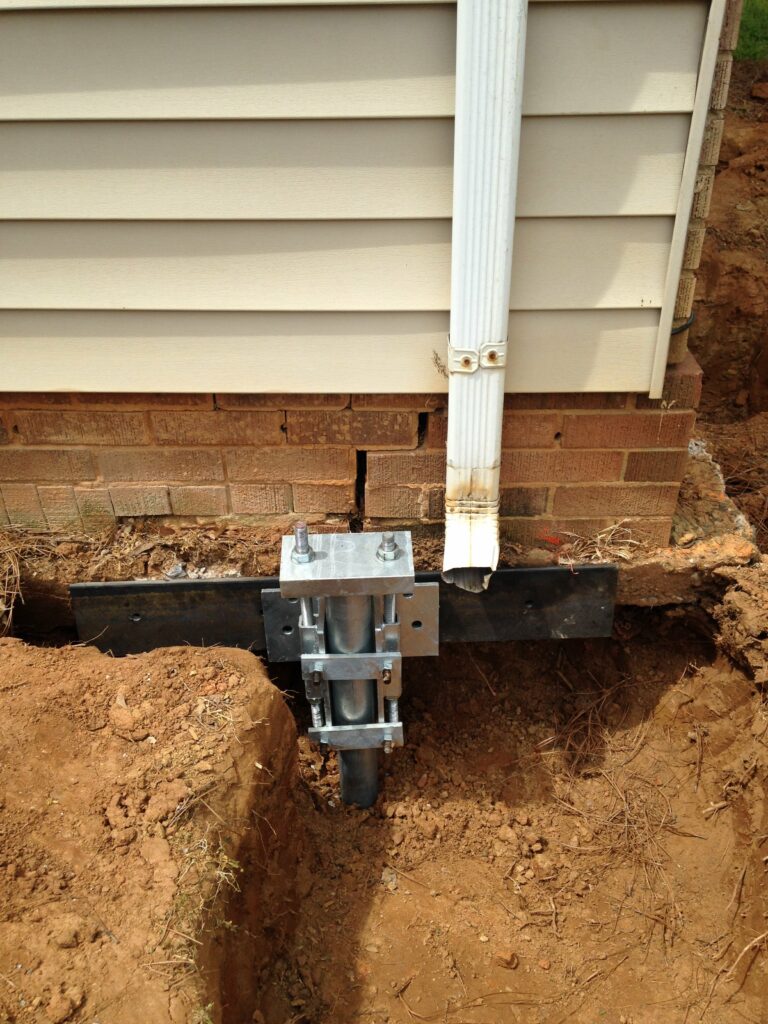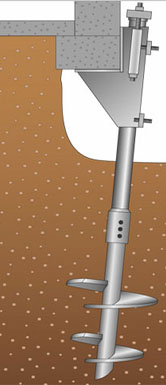With Spring in full swing, unpredictable weather is inevitably upon us. Rain is much needed to bring our nice green lawns back to life, but did you know that soil-related foundation problems are the number one issue reported by homeowners?
For structural professionals, the issue of foundation stability during seasonal changes is well understood. Heavy rainfall in the spring can cause the soil around and beneath the foundation to swell. Conversely, during summer droughts, the soil dries and contracts. This shrinkage can create voids into which the foundation can settle, leading to cracks. Any crack in the foundation is a potential entry point for water, which can exacerbate the problem. Although a leaking foundation is a common issue, it is essential to have any cracks or leaks evaluated by a structural contractor to determine if there are more significant underlying foundation problems.
Identifying soil-related foundation problems early can prevent extensive damage and costly repairs. Here are some common symptoms to watch for:
One of the most noticeable signs of foundation problems is the appearance of cracks in interior or exterior walls, floors, and ceilings. These cracks can vary in size and direction, but diagonal or stair-step cracks are often indicative of foundation movement.
If doors and windows start sticking or jamming, it could be due to foundation settling. As the foundation shifts, it can distort the frames of doors and windows, making them difficult to open or close properly.
Floors that are uneven, sagging, or have a noticeable slope can indicate that the foundation has settled unevenly. This can lead to significant structural issues if not addressed promptly.
Gaps between walls and door or window frames can develop as the foundation shifts. These gaps may be more noticeable during certain times of the year, depending on soil moisture levels.
Foundation movement can cause basement or retaining walls to bow or lean inward. This can compromise the structural integrity of the entire building if not repaired.
If you notice water seeping into your basement or crawl space, it could be due to foundation cracks caused by soil movement. Persistent water intrusion can lead to mold growth and further structural damage.
A leaning or separating chimney or porch can be a sign that the foundation beneath it is settling or shifting. These structures are often supported by the same foundation as the rest of the house, so their movement is a red flag.
Visible cracks in the foundation itself, whether horizontal, vertical, or diagonal, are a clear indication of movement. These should be inspected by a professional to determine the extent of the damage.
Gaps and cracks caused by foundation settling can create entry points for pests such as insects, rodents, or snakes. These pests can cause further damage and pose health risks to occupants.
Foundation movement can also affect plumbing systems, leading to leaks, breaks, or reduced water pressure. Unexplained increases in water bills can be an early indicator of such issues.
Recognizing these symptoms early can help homeowners address foundation issues before they become severe. If you notice any of these signs, it’s essential to consult with Tar Heel Foundation Solutions to assess the situation and recommend appropriate solutions.
One effective method for addressing soil-related foundation issues is Helical Underpinning. This technique involves screwing helical piers deep into the soil until they reach a stable load-bearing stratum. Once this depth is achieved, an underpinning steel foundation bracket is attached to the piers. The weight of the structure is then transferred onto these piers and subsequently to the stable soil beneath. This new underpinning system ensures that the foundation remains stable, preventing future sagging or shifting. Below are images that visually depict the helical underpinning process, illustrating its effectiveness in stabilizing foundations.




Over time, foundations take a lot of wear and tear from natural elements. This includes soil-related foundation problems! If you notice cracks or any shifting in your foundation, call the structural contractors of North Carolina- Tar Heel Foundation Solutions. Tar Heel Foundations Solutions of Charlotte offers a variety of foundation repair solutions for homes and buildings in Charlotte, NC. Our company is a full-service North Carolina foundation repair team that utilizes quality products and effective solutions for structural issues. We look forward to helping you!